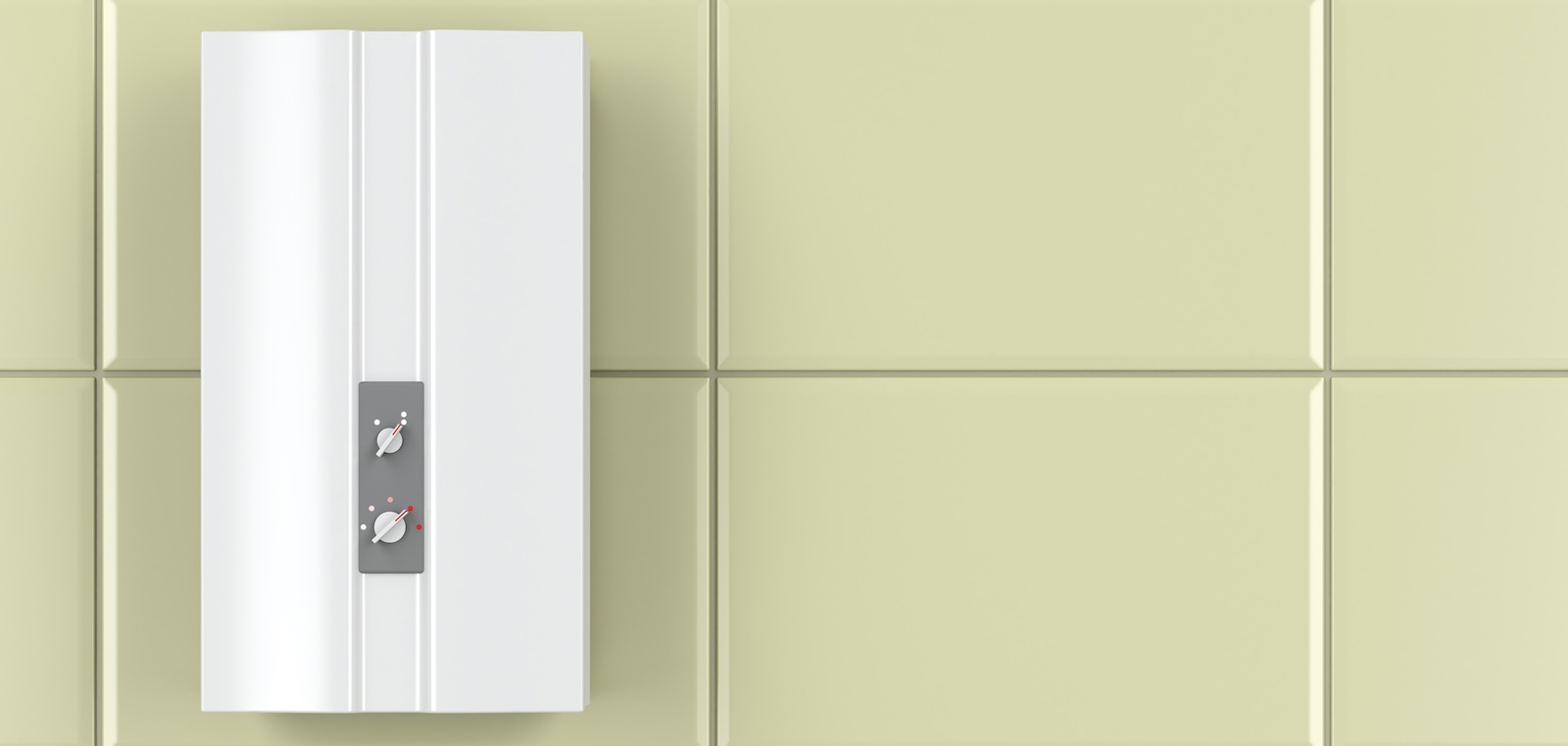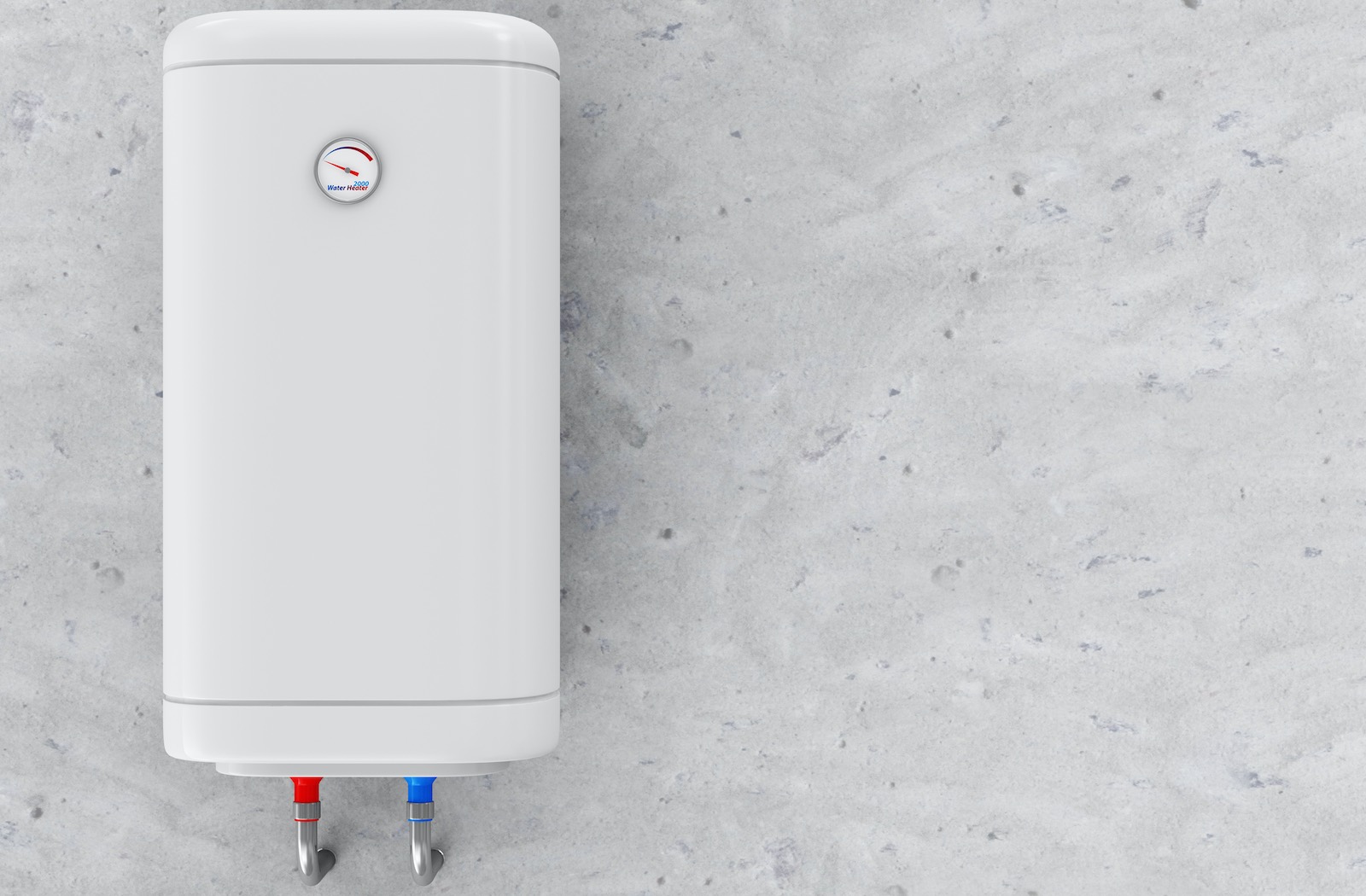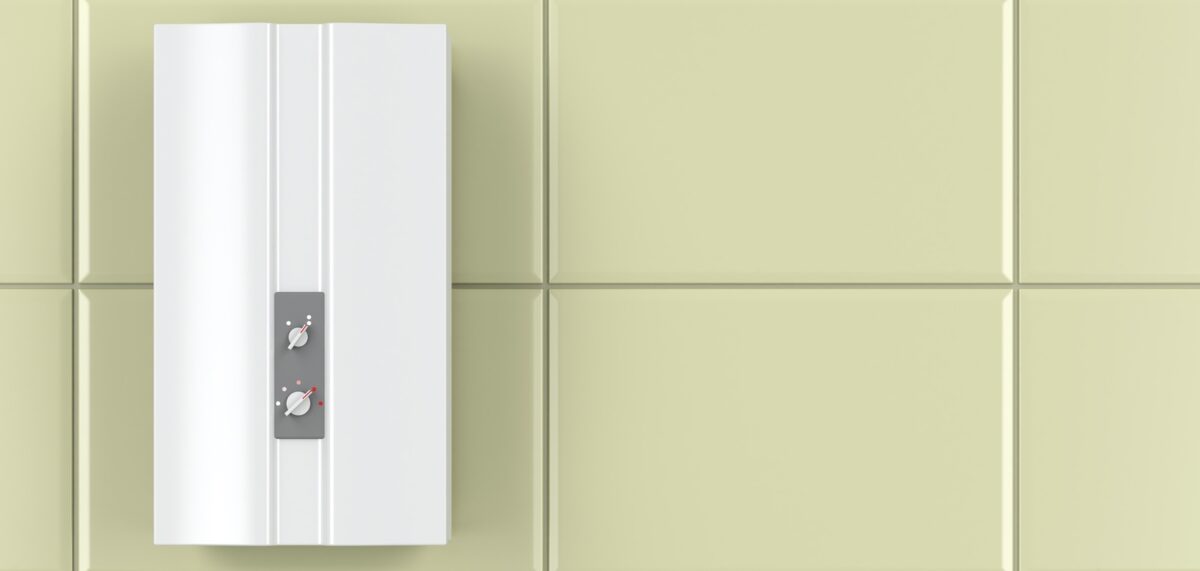
Installing a water heating system in the home is a significant investment. While it’s costly to purchase and complicated to install, it’s thankfully something you don’t have to do very often. A decent water heater should last you between 10 and 20 years, depending on which type you choose for your home.
Since you’re reading this article, you’ve likely discovered that there are two main water heater types for the home. The electric tankless water heater and the storage tank water heater are both popular methods for heating water. They each come with pros and cons, which you need to weigh up to determine which is right for your property.
Choosing the right kind of water heater for your circumstances can result in significant cost savings over time. This is why it’s so important to make the right choice. Let’s dive deeper into what the two types of water heaters are and how they work.
What is a Tankless Water Heater?
The household tankless water heater is a hot water heater, gas, or electric-powered that doesn’t require any kind of reservoir to store the water before its heated. They are also known as instantaneous water heaters or on-demand water heaters.
They have the capacity to produce two to five gallons of hot water per minute, with gas being the more powerful heating method over electric.
The most popular tankless water heater brands are:
-
Bosch
-
Rheem
-
Stiebel Eltron
-
Ecosmart
-
Rinnai
The advantage of the continuous gas water heater is that they are much smaller in size and only heat the water that you’re using. The main disadvantage is that they can struggle to send hot water to multiple locations at once due to their output capacity. For example, if you’re running the shower, the dishwasher, and the faucet at the same time, the water heater won’t be able to keep up with the demand.
Sometimes, the tankless water heater may only serve one outlet rather than the entire household. The most common example is the electric shower unit. This can mean you require several tankless water heaters throughout the home.
How Does the Residential Tankless Water Heater Work?
The system works by passing cold water through a heat exchanger that warms the water up to the desired temperature. This can either be via a gas burner or an electrical heating element. When you turn on the hot faucet, the system kicks into action and will deliver the hot water as and when you need it.

What is a Storage Tank Water Heater?
The storage tank water heater features an insulated reservoir of water. This can be between 20 – 80 gallons, with 50 gallons being the most common size. Instead of heating the water as you need it, the system will heat the entire tank of water which is then dispersed throughout the household as and when you need it.
These types of water heaters are common in rented homes because of their low-cost installation. They can be heated via electricity, gas, propane, or oil, so they are more versatile than their tankless counterparts in this respect.
The water in a storage-tank water heater can take a while to get up to temperature, and if the hot water isn’t used, it will cool back down again, which wastes energy. However, the tank of water can be dispensed in multiple locations across the home at the same time. So, if you have several bathrooms in the home that are used simultaneously, this type of system will be able to handle it.
How is it Different From Tankless?
The most significant differences between storage tank heaters and tankless heaters are:
-
Storage tanks require a reservoir of water; tankless varieties don’t and are therefore significantly smaller.
-
The upfront costs of storage tanks are lower than tankless systems.
-
With a storage system, you have to wait for your hot water to heat up. With a tankless system, it’s instantaneous.
-
The storage system can serve multiple outlets at once. The tankless system is a bit more limited in this respect.
-
There is no heat loss or energy waste with a tankless system. A storage system will experience standby heat loss if the whole tank of water isn’t used.
Which Type of Water Heater is More Efficient?
If you’re talking about energy efficiency, then the tankless hot water heater wins hands down. This is because you don’t get any standby heat loss from tankless systems. They only heat the water you need. They are ideal for households that manage their water consumption. Many people choose to replace the water heater with tankless because it can result in energy cost savings of over 30%.
Storage tank varieties should not be ignored, though. For some households, they can be more efficient, especially if you have a larger family. The key is to determine whether or not the people in your household are likely to use a whole tank of water in one go.
Are Both Types of Water Heaters Installed the Same Way?
Since they require different hardware, the installation of the two types of water heaters differs.
Storage tank systems require the space to install the large reservoir and will be connected to all water outlets in the household. The tankless system requires far less space, but you may need to install more than one heater to adequately cover all outlets.
Switching from storage tank to tankless requires retrofitting the entire system. This is complicated.
What is the Difference in Terms of Maintenance?
Both types of water heating systems require little maintenance, but you should keep an eye on them to address any issues before they get out of hand. Performing checks every six months and having them serviced regularly will significantly improve their lifespan.
Do Tankless Water Heaters Have a Longer Lifespan?
If kept well-maintained, the best tankless gas water heater will last you around 20 years. Compared to the storage tank heater’s lifespan of between 10 – 15 years, you will get more for your money from a tankless system.
Are Tankless Water Heaters Safer?
Tankless systems are generally considered safer than storage systems. This is largely due to the fact that you do not have a tank that could malfunction and overheat or experience a surge in pressure and subsequently burst. Storage systems can also be hot to touch, posing a risk to anyone that may come into contact with it.
The main risk associated with tankless systems is carbon monoxide leaks. However, this is only a concern if your system is gas-powered. You’d have the same risk with a storage system, too.
Which Type of Water Heater Takes up Less Space?
You can probably easily guess the answer to this question. Tankless systems take up significantly less space and are therefore far more versatile when it comes to installing them. They are also ideal for small properties like apartments, condos, and tiny homes.
Is the Water Temperature Consistent With Both Types?
The consistency for both types of heating systems depends on their use.
For a tankless system, it depends on how many outlets it’s connected to. A tankless heater that is only connected to the shower unit will have the capacity to consistently deliver the desired temperature to the shower. A heater that is connected to several outlets may struggle to deliver a consistent temperature to all outlets at once.
Storage tank systems can deliver a consistent temperature of water to all outlets until the tank has emptied of hot water. Then you will have to wait until the fresh tank has heated up. Standby heat loss is the biggest issue for storage systems. Suppose you heat your tank up to the desired temperature in the morning and only use half of it. If you want to use the remaining half later in the day, you will find the water has cooled down and may not be hot enough for your liking.
Can Both Types Run During a Power Outage?
Both types of water heaters require electricity to run them, so neither water heater will work during a power outage, unless you have energy storage such as a Tesla Powerwall. However, if you have a storage tank system and your tank was heated before the power outage occurred, you will still have hot water until the tank runs out or cools down.
What is the Difference in Terms of Cost?
Purchasing and installing a tankless system will cost you more than a storage system.
-
A storage system averages between $300 – $1,500
-
A tankless system averages between $500 – $2,500 (solar-powered systems cost up to $6,000)
-
Storage system installation costs between $400 – $1,000
-
Tankless installation costs between $1,000 – $6,000
Which Costs More to Operate?
Overall, tankless systems are more energy-efficient to run and therefore cost less. This is due to there being no wastage from standby heat loss like you get from storage systems. Tankless systems are between 8% – 34% more efficient.
Consider how many tankless heating units you may need to cover all outlets. If you need several, you may find there are no savings compared with using a single storage tank system.
Do Tankless Water Heaters Lower Your Energy Bill?
If you’ve chosen the appropriate-sized tankless system for your needs, then yes, you can very easily experience a reduction in your energy bill.
What to Keep in Mind When Choosing a Tankless or Storage Tank?
You need to consider several factors when choosing which system is best for your needs. Unfortunately, there’s no “one size fits all” solution, and it very much depends on your home and living situation.
Budget
Your budget will very quickly determine what you have available to you. You need to weigh up whether you’re willing to pay more upfront but potentially save more in the long run. Or if you want to buy and install a cheaper system but are willing to put up with higher energy bills.
Size of Your Home
The size of your home is important for two reasons. Firstly, can it accommodate a large water tank? And secondly, how many outlets does the heating system need to serve?
If your home is too small to have a tank installed, then you already have your answer. If you think your home can accommodate a tank, then you need to consider how many outlets you have and which system would best cope with the demand.
The Climate of Your Location
It’s no secret that it’s harder to heat things when it’s cold. A tankless system will manage better in the cold since it’s only heating a small amount at a time. It is much harder to heat a large tank of water when the temperature is below freezing.
How Often People are Home
Most households experience a surge in hot water use at certain times of the day. Could a tankless system cope with the demand in your household? Or, would a storage tank be better for this?
Seasonal or Permanent Home
Are you looking for a system you will use every day or only while you’re on vacation? Seasonal homes in hotter climates use very little hot water, so you may prefer to have a tankless system in place for just the shower unit and faucets.
Despite the higher upfront costs, an insta hot water heater is the preferred choice for most people. The energy efficiency and cost savings over time are an attractive plus point. When it comes to smaller homes where space is an issue, the tankless system wins hands down. Ultimately, you need to weigh up the pros and cons of each system and determine which will best serve your requirement.

